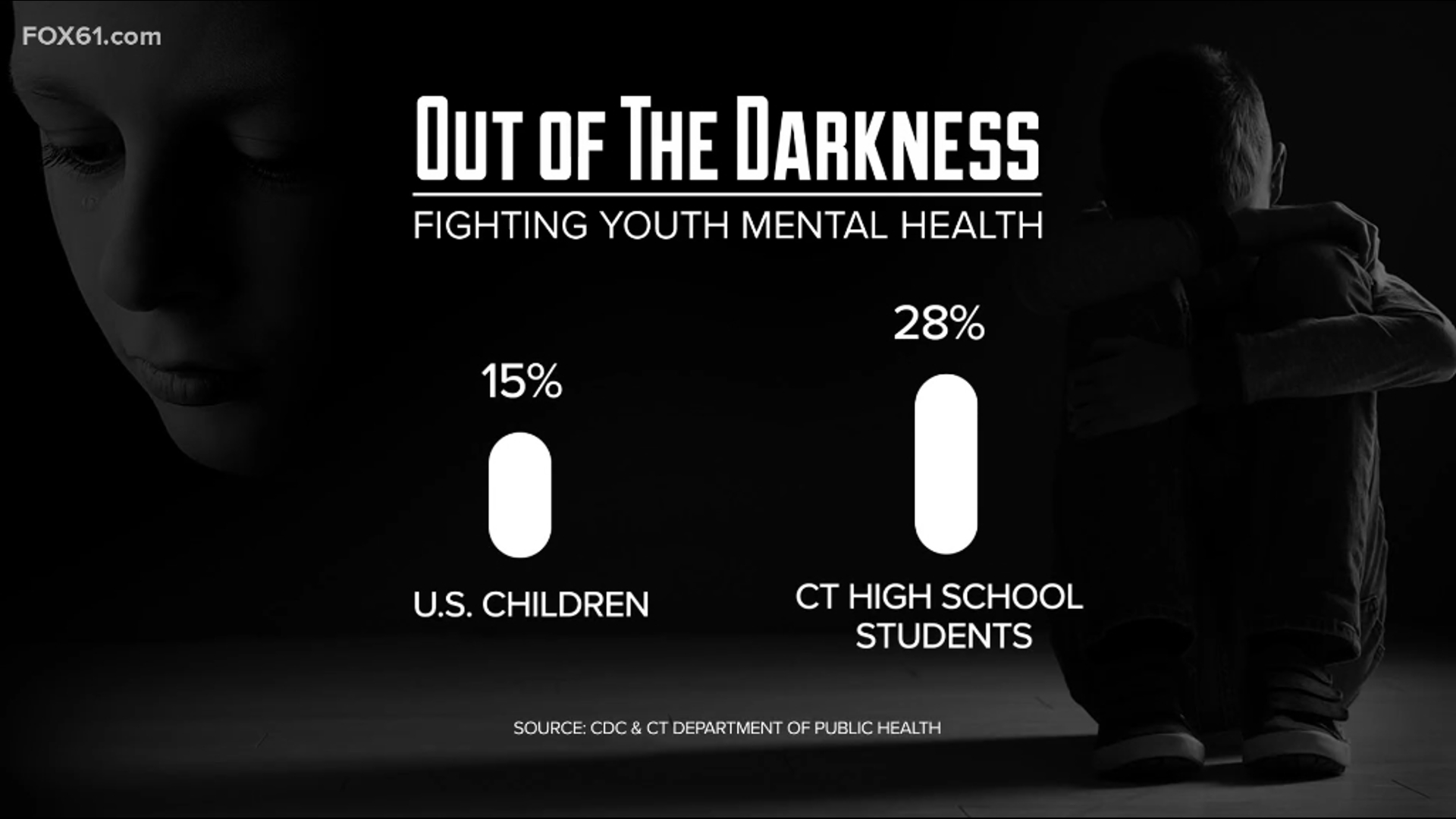CONNECTICUT, USA — July is National Minority Mental Health Awareness Month – an effort to shine a light on the disparities when it comes to addressing and caring for mental health.
The COVID-19 pandemic revealed the need for more mental health care for kids and teens. People of color face even more hurdles to obtain that same care.
Experts say several factors can weigh on a child’s mental health, from witnessing crime in their communities to seeing violence from around the world in the news. Still, that weight could be amplified for young people with additional stresses like school, navigating relationships, and self-discovery.
More young people are experiencing mental health challenges. Last year, a report from the Centers for Disease Control and Prevention (CDC) found that in 2021, nearly 15% of children aged 5-17 had received mental health treatment, and just over 8% of them had taken medication. Almost 12% received therapy or counseling from a mental health professional.
In Connecticut, a 2022 survey of students in Killingly found 28% of high school students struggled with thoughts of self-harm.
“Mental health is top three, in terms of mortality for youth, so it's definitely something that we need to be looking into,” said Dr. Claudia Moreno, the medical director of psychiatric emergencies at Yale New Haven Health Children’s Hospital.
Moreno explained the common sources that cause mental health struggles for teens and children.
“Break-ups, getting in trouble – real trouble like with their parents, getting in trouble with school, getting in trouble with authorities – those things can be quite destabilizing,” said Moreno.
People of color face additional challenges when it comes to addressing mental health problems like financial burdens, which leads to more moments of crisis.
“When they face discrimination, or racial profiling or have witnessed community violence and how maybe the police have interacted, even with the media with George Floyd and all that," Moreno explained. "There are times when I have seen big mistrust for agencies like the police or Department of Children and Families. Such mistrust has led to a delay in care, meaning 'I know my child needs help, but I also don’t want to get in trouble, and I don’t want to lose them,'” said Moreno.
She said stigma around mental health care may also delay treatment.
“There are tons of myths about mental health, right? I know in the Hispanic community, which I can speak on, there's this thought that if you say you have a mental illness, then that character is something's wrong with you. You might not be able to be successful in life,” said Moreno.
There are signs parents can be on the lookout for that may indicate their child may be experiencing mental health challenges. Moreno said those signs could be when children and teens are cutting out relationships and isolating more when there are changes in their sleep or appetite, or when you notice they're self-medicating with substances.
Moreno stressed that how parents react to their child's mental health struggles can make a world of difference.
“'What's going on with you? [You] used to have all A's in school and now you're failing.' And it's coming from a place of good intention," Moreno said. "The parent is concerned about their child, but if this child has already kind of approached depression, they hear their parents saying those things, they're not hearing 'Mom and dad are concerned,' they're hearing 'I’m a disappointment, I’m a failure,' and it could add insult to injury."
The key is to get your kids talking about their mental health, according to Moreno, is coming from a place of more curiosity and ensuring their child can speak to someone they trust about their struggles.
Moreno acknowledges that the state can't fully address youth mental health at all levels of care, but she hopes it can change.
"There is an uptick in the need for substance abuse treatment and also for eating disorder treatment of minorities," Moreno said. "And it's sad that in the state of Connecticut, we don't have all of the levels of care for those children. We have families saying, 'How am I going to be okay having my child go all the way to Massachusetts or New York for care if I have [...] two jobs and two and three other children to take care of?' So that's definitely something that is a concern to me, and I hope that we find a solution pretty quickly."
In the end, Moreno said that she hopes leaders in other communities can step out into the light and discuss their own mental health struggles, discuss their journeys to poverty and inspire others to seek help and support.
If you or a loved one is struggling with mental health, you can find resources to help here.
---
MORE STORIES
Bill to protect kids online, make tech companies accountable for harmful content passes in US Senate
---
Jake Garcia is a multimedia journalist for FOX61 News. He can be reached at jgarcia@fox61.com. Follow him on Facebook, X, and Instagram.
Have a story idea or something on your mind you want to share? We want to hear from you! Email us at newstips@fox61.com
HERE ARE MORE WAYS TO GET FOX61 NEWS
Download the FOX61 News APP
iTunes: Click here to download
Google Play: Click here to download
Stream Live on ROKU: Add the channel from the ROKU store or by searching FOX61.
Steam Live on FIRE TV: Search ‘FOX61’ and click ‘Get’ to download.

